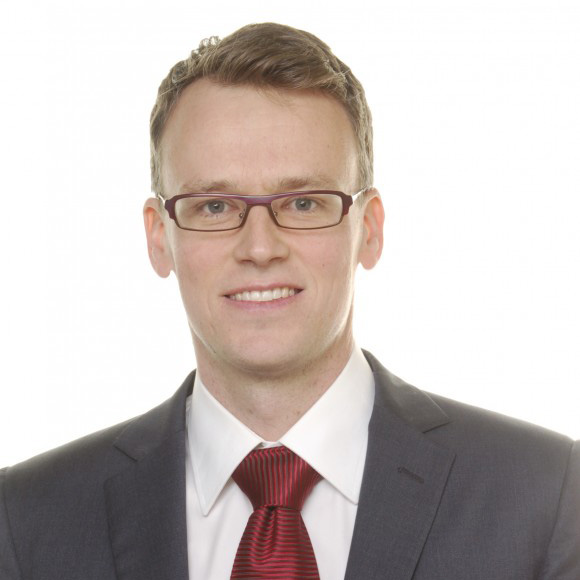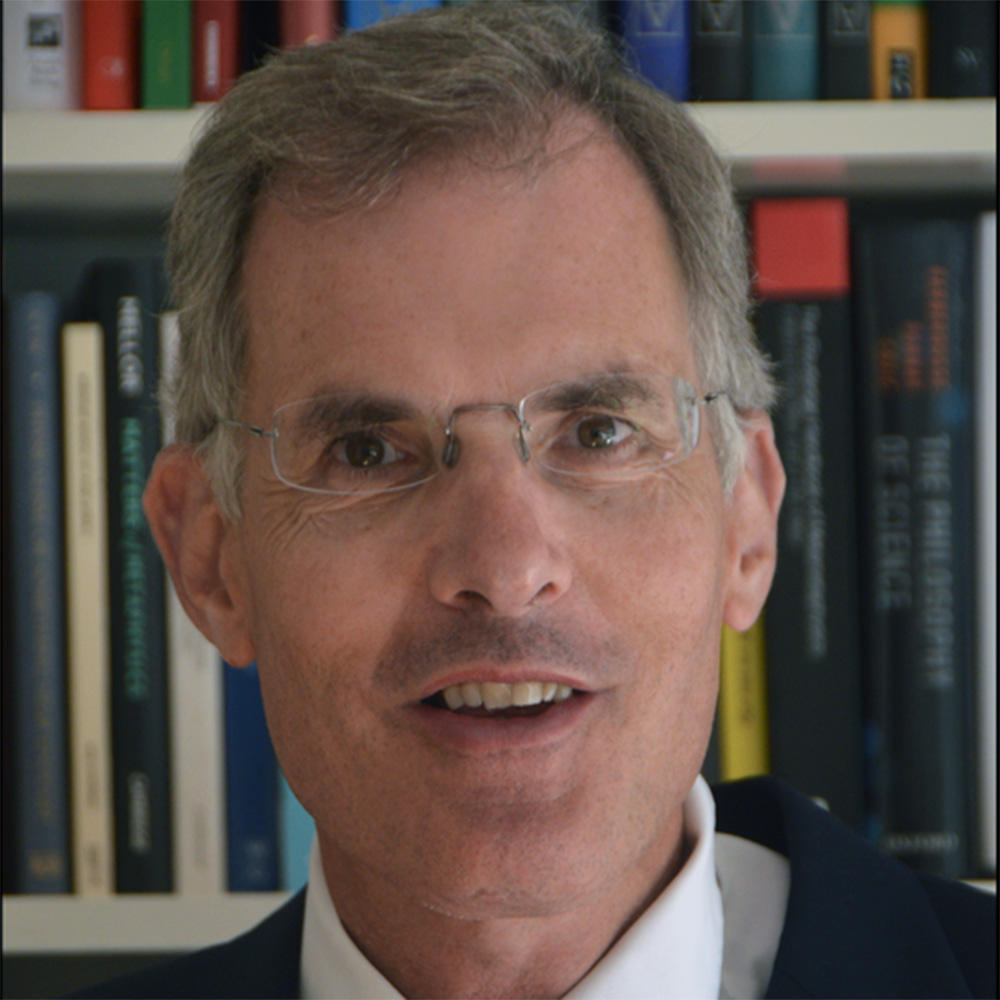With the following Western Civilization Declaration, our intention is to make a strong case in the public for the foundations of our civilization still being an appropriate guide for the future of humanity. The patrons of the declaration are Václav Klaus, Javier Milei, and Jordan Peterson. We publish the declaration together with the names of 106 invited initial supporters. Over and above these persons, we are grateful to Guido Hülsmann and Thorsten Polleit for their help in organizing the declaration as well as Olivier Kessler for the publication via the Liberal Institute.
Madrid and Lausanne, 1 October 2024
Philipp Bagus and Michael Esfeld
Western Civilization Declaration
We are concerned about the direction that Western Civilization is taking. While there are currently powerful ideological-political forces at work that are about to destroy this civilization from within, we are convinced that many of its achievements still have the potential to serve as a guide for a just, peaceful, and prosperous future for the whole of humanity:
- The thinkers of Greek and Roman antiquity, as well as the Jewish-Christian doctrine of man being created in the image of God and its secularization in the Age of Enlightenment, have established that all human beings are endowed with reason, therefore free in their thinking and acting and consequently responsible for what they do. Universal reason is what unites humankind and leads to recognizing each human being as an individual and unique person with dignity and the inalienable right to self-determine her or his life. By contrast, identities based on group affiliations (racial, gender, religious, or otherwise) divide humankind and result in suppressing individual freedom and dignity.
- Through the recognition of individual freedom rights – the rights to life, liberty, and property – Western civilization has brought about achievements that are of utmost significance for the whole of humanity. These achievements include the abolition of slavery, the banishment of racism and tribalism, as well as the development of science and the rule of law, granting equal rights to all. Western civilization has flourished because these individual freedoms have enabled the spontaneous emergence of communities and societies built on voluntary interactions, rather than on coercion exercised by a central authority.
- Individual liberties under the rule of law have paved the way for modern science and private entrepreneurship. Thanks to them, savings and hard work have not remained sterile or focused on the needs of political authorities, as they typically are in coercive social settings. Rather, through the creation of free markets and the deployment of capital (capitalism), they have created an unparalleled improvement in prosperity for all segments of the population. They have also provided efficient protection against the various risks in life for all, including an unheard-of improvement of hygienic standards and encouraging the careful, sustainable use of natural resources.
- The socio-economic order that spontaneously springs from individual liberties under the rule of law is fundamental for material progress and the protection of the environment. Central planning and the abrogation of private property rights, by contrast, result in poor living standards for all but a small elite, while at the same time leading to the destruction of the natural environment.
Against the backdrop of these facts, we are convinced that continuing on the path of scientific, technological, economic, and cultural progress within the Western civilization’s framework of individual freedoms, private property, and the rule of law is the only way to preserve the past achievements while coping with the challenges of our times and building a just, peaceful, and prosperous future for the whole of humankind.
Patronage committee:
Václav Klaus, Former President of the Czech Republic
Javier Milei, President of Argentina
Jordan Peterson, Professor of Psychology
Enquiries:
Philip Bagus, Professor of Economics, Universidad Rey Juan Carlos, Madrid, Spain, philipp.bagus@urjc.es
Michael Esfeld, Professor of Philosophy, University of Lausanne, Switzerland, michael.esfeld@unil.ch
Invited signatories
Miguel Ángel Alonso Neira, Professor of Applied Economics, Universidad Rey Juan Carlos, Madrid, Spain
Javier Aranzadi, Professor of Economic Theory and History, Universidad Autónoma de Madrid, Spain
André Azevedo Alves, Professor of Political Science, St. Mary’s University Twickenham, London, UK
Philip Bagus, Professor of Economics, Universidad Rey Juan Carlos, Madrid, Spain
Luigi Marco Bassani, Professor of History of Political Thought, Università Telematica Pegaso, Rome, Italy
Miguel Anxo Bastos Boubeta, Professor of Political Science, Universidade de Santiago de Compostela, Spain
Konstantin Beck, Professor of Health Economics, University of Lucerne, Switzerland
Alberto Benegas Lynch, Presidente de la Sección Ciencias Económicas, Academia Nacional de Ciencias de Buenos Aires, Argentina
Ralf B. Bergmann, Professor of Physics, Bremen, Germany
María Blanco González, Professor of History of Economic Thought, Universidad CEU-San Pablo, Madrid, Spain
Hardy Bouillon, Professor of Philosophy, Trier, Germany
Andreas Brenner, Professor for Philosophy, Basel, Switzerland
Per Bylund, Professor of Entrepreneurship, Oklahoma State University, Stillwater, Oklahoma, USA
Paul Cullen, Professor of Laboratory Medicine, University of Münster, Germany
Gerald Dyker, Professor of Chemistry, University of Bochum, Germany
David Engels, Professor of History, Brussels, Belgium
Michael Esfeld, Professor of Philosophy, University of Lausanne, Switzerland
Eduardo Fernández Luiña, Professor of Political Studies, Universidad Francisco Marroquín, Madrid, Spain
Bernado Ferrero, Economist, Universidad Rey Juan Carlos, Madrid, Spain
Egon Flaig, Professor emeritus of Ancient History, University of Rostock, Germany
Gunter Frank, Physician and publicist, Heidelberg, Germany
Carlos A. Gebauer, Specialist lawyer for medical law, Deputy Chairman of the Hayek Society and Deputy Chairman of the North Rhine-Westphalia Bar Court, Düsseldorf, Germany
Bogdan Glăvan, Professor of Economics, Romanian-American University, Bucharest, România
León Gomez Rivas, Professor of Ethics and History of Economic Thought, Universidad Europea, Madrid, Spain
Gudrun Günzel, Pediatrician, Dresden, Germany
Reinhard Günzel, Physicist and Entrepreneur, Dresden, Germany
Andreas Heisler, Physician and Publicist, Ebikon, Switzerland
Laurent Heisten, Avocat à la Cour, Luxembourg
Jeffrey Herbener, Professor of Economics, Grove City College, Pennsylvania, USA
Stefan Homburg, Professor emeritus of Public Finance, University of Hannover, Germany
Guido Hülsmann, Professor of Economics, University of Angers, France
Jesús Huerta de Soto, Professor of Economics, Universidad Rey Juan Carlos, Madrid, Spain
Karl-Friedrich Israel, Professor of Economics, Université Catholique de l’Ouest, Angers, France
Nathalie Janson, Professor of Economics, Neoma Business School, Paris, France
Axel Kaiser, Presidente de la Fundación para el Progreso, Santiago, Chile
Eric Kaufmann, Professor of Politics, University of Buckingham, UK
Olivier Kessler, Managing Director of the Liberal Institute, Zurich, Switzerland
Kay Klapproth, Biologist and Science Publicist, Heidelberg, Germany
Peter Klein, Professor of Entrepreneurship, Baylor University, Waco, Texas, USA
Marcus Knaup, Private Docent in Philosophy, Hagen, Germany
Jörg Knoblauch, Honorary Professor, Entrepreneur and Publicist, Giengen, Germany
Barbara Kolm, Economist and Director of the Friedrich von Hayek Institute, Vienna, Austria
Robert C. Koons, Professor of Philosophy, University of Austin, Texas, USA
Sandra Kostner, Historian, University of Education Schwäbisch Gmünd & Chair of the Network for Academic Freedom, Germany
Boris Kotchoubey, Professor emeritus of Medical Psychology, University of Tübingen, Germany
Markus Krall, Entrepreneur and Publicist, Hauptwil, Switzerland
Martin Krause, Professor of Economics, Universidad de Buenos Aires, Argentina
Philipp Kruse, Attorney at Law, Zurich, Switzerland
Axel Bernd Kunze, Private Docent in Educational Science, University of Bonn, Germany
Daniel Lacalle, Economist, London, UK
Christian Langer, Entrepreneur, President of the Hayek Club Trier-Luxembourg, Germany
Vera Lengsfeld, Publicist, Sondershausen, Germany
Kurt R. Leube, Professor emeritus of Economics, Academic Director of the European Centre for Austrian Economics Foundation, Stanford, USA
Manuel Llamas, Executive Director of the Instituto Juan de Mariana, Madrid, Spain
Cristian Lopez, Philosopher, University of Lausanne, Switzerland
Carlo Lottieri, Professor of Philosophy of Law, Università Telematica Pegaso, Rome, Italy
Christoph Lütge, Professor of Business Ethics, Technical University of Munich, Germany
Cristian Manolachi, Historian, Cluj-Napoca, România
Antonio Martínez González, Professor of Economics, Universidad Rey Juan Carlos, Madrid, Spain
Cristobal Matarán, Professor of Economics, Universidad Europea, Madrid, Spain
Jörg Matysik, Professor of Analytical Chemistry, University of Leipzig, Germany
Thomas Mayer, Economist, Director of the Flossbach von Storch Research Institute, Cologne, Germany
Michael Meyen, Professor of Communication, Ludwig Maximilians University Munich, Germany
Alberto Mingardi, Professor of History of Political Thought, IULM University Milan, Italy
Daniel Model, Entrepreneur, Member of the Board of Trustees of the Liberal Institute, Triesen, Liechtenstein
Gustavo Morales-Alonso, Professor of Economics, Entrepreneurship and Innovation, Universidad Politécnica de Madrid, Spain
José Manuel Moreira, Professor of Ethics and Political Science, Universidade de Aveiro, Portugal
Gerd Morgenthaler, Professor of Law, University of Siegen, Germany
Benjamin Mudlack, Entrepreneur, Member of the Board of the Atlas Initiative, Salzbergen, Germany
Antony Müller, Professor of Economics, Federal University of Sergipe, Brazil
Gabriel Mursa, Professor of Economics and International Relations, University Alexandru Ioan Cuza, Iaşi, România
Dietrich Murswiek, Professor emeritus of Public Law, University of Freiburg, Germany
Robert Nef, Publicist, St. Gallen, Switzerland
Max Otte, Professor of Political Economy and Entrepreneur, Cologne, Germany
Cristian Păun, Professor of Economics, Bucharest University of Economic Studies, Bucharest, România
HSH Prince Philipp of Liechtenstein
Thorsten Polleit, Professor of Economics, University of Bayreuth and President of the Mises Institute, Germany
Jean-Claude Pont, Professor emeritus of History and Philosophy of Science, University of Geneva, Switzerland
Adrián Ravier, Professor of Economics, Universidad del CEMA, Buenos Aires, Argentina
Carlos Rodríguez Braun, Professor of History of Economic Thought, Universidad Complutense, Madrid, Spain
Peter Ruch, Retired Pastor and Publicist, Küssnacht am Rigi, Switzerland
Roberto Salinas León, Director of the Atlas Network Center for Latin America, Mexico City
David Sanz Bas, Professor of Economics, Universidad Católica de Ávila, Spain
Andreas Schnepf, Professor of Inorganic Chemistry, University of Tübingen, Germany
Dieter Schönecker, Professor of Philosophy, University of Siegen, Germany
Christian Schubert, Professor of Medical Psychology, Psychotherapy and Psychosomatics, Medical University Innsbruck, Austria
Andrea Seaman, President of the Free Speech Union Switzerland, Zurich, Switzerland
Sigmund Selberg, Professor of Mathematics, University of Bergen, Norway
Wolfgang Stoelzle, formerly Professor of Logistics Management, University of St. Gallen, Switzerland
André Thess, Professor of Energy Storage, University of Stuttgart, Germany
Andreas Tiedtke, Doctor of Law, Member of the Executive Board of the Ludwig von Mises Institut Deutschland, Lauf an der Pegnitz, Germany
Mark Thornton, Senior Fellow, Mises Institute, Auburn, Alabama, USA
Mihai Vladimir Topan, Professor of Economics, University of Economic Studies, Bucharest, România
Cristinel Trandafir, Professor of Social Sciences, University of Craiova, România
Jeffrey Tucker, Brownstone Institute, Austin, Texas, USA
Tobias Unruh, Professor of Physics, University of Erlangen-Nürnberg, Germany
Eric P. Verrecchia, Professor emeritus of Earth Surface Dynamics, University of Lausanne, Switzerland
Carola Freiin von Villiez, Professor of Philosophy, University of Bergen, Norway
Daniel von Wachter, Professor of Philosophy, Mauren, Liechtenstein
Gerhard Wagner, Professor of Sociology, Goethe University, Frankfurt (Main), Germany
Karla Wagner, President of the Hayek Club Weimar, Germany
Harald Walach, Professorial Research Fellow, Next Society Institute, Kazimieras Simonavicius University Vilnius, Lithuania
John Waters, Publicist, Dublin, Ireland
Erich Weede, Professor emeritus of Sociology, University of Bonn, Germany
Roland Wiesendanger, Professor of Physics, University of Hamburg, Germany
Toby Young, Director, The Free Speech Union, London, UK
Paul Coleman, Executive Director, Alliance Defending Freedom, Vienna, Austria
Olga Peniaz, Professor of Economics, Université Catholique de l’Ouest, Angers, France
Sandro Piffaretti, Entrepreneur, Member of the Board of Trustees of the Liberal Institute, Zug, Switzerland
Markus Riedenauer, Professor of Philosophy, Catholic University of Eichstätt-Ingolstadt, Germany
Jaroslav Romanchuk, President of International Liberty Institute, Kiev, Ukrania
Hardy Schwarze, M.D., Surgeon, Nürnberg, Germany
Ulrich Vosgerau, Attorney at Law, Berlin, Germany
Kristen Waggoner, CEO, President and General Counsel, Alliance Defending Freedom, Vienna, Austria
Rainer Zitelmann, Historian and Sociologist, Berlin, Germany
Graedon Zorzi, Professor of Theology and Philosophy, Patrick Henry College, Purcellville, Virginia, USA
Daniel Klein, Professor of Economics, George Mason University, Fairfax, VA, USA
James Lyons-Weiler, Formerly Professor of Cancer Research, University of Pittsburgh, USA
Emanuele Martinelli, Philosopher, University of Zurich, Switzerland
Join the conversation:


Published under a Creative Commons Attribution 4.0 International License
For reprints, please set the canonical link back to the original Brownstone Institute Article and Author.










